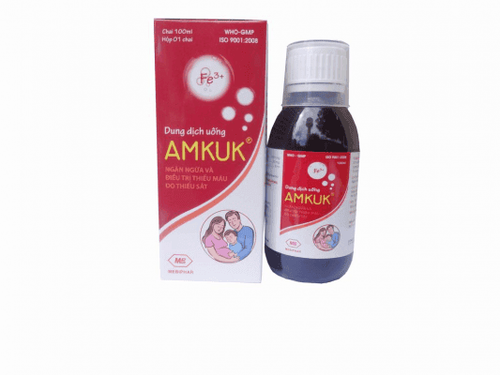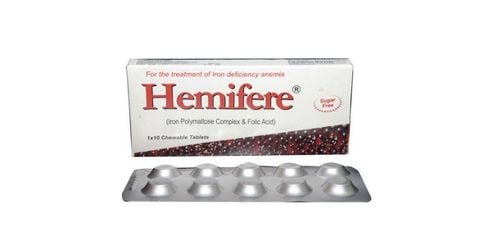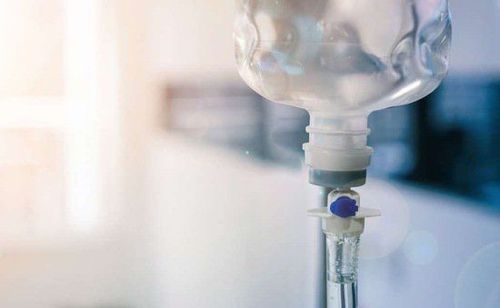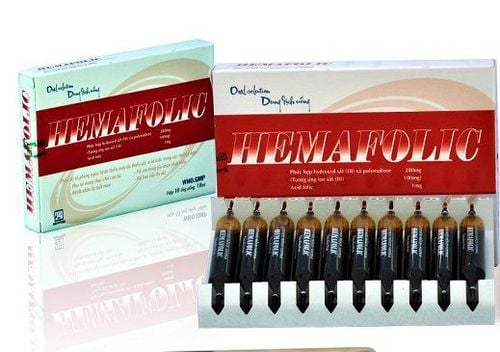This is an automatically translated article.
Postpartum anemia is quite common in women. Consequences of iron-deficiency anemia after birth can have serious and long-term effects on the health of both mother and baby. Therefore, cases of postpartum anemia in women need to be detected and treated early to avoid the above consequences. This article will provide information to help you understand this condition.
1. Anemia after birth
Anemia is considered an important public health problem worldwide, especially for women of reproductive age. The main cause of postpartum anemia in postpartum women is determined to be iron deficiency. The main consequence of postpartum anemia is iron deficiency anemia in the postpartum period - about six weeks after birth, which can have serious and long-lasting effects on the health of both the mother and the newborn. According to the statistics of studies, when investigating postpartum anemia, it has been shown that about 10 to 30% of postpartum women will have anemia. Because anemia is considered a community disease and is widespread worldwide, and is not limited to all in any one country or even postpartum anemia in low- and middle-income countries with may have a higher rate. However, not all women are fully aware of postpartum anemia.
Postpartum anemia is defined as chronic iron deficiency postpartum with a hemoglobin concentration below 110g/L at one week postpartum and a hemoglobin concentration less than 120g/L at eight weeks postpartum. .
The process of postpartum anemia can develop in three stages:
In the first stage, the iron concentration in the bone marrow begins to show signs of depletion, causing the total amount of iron in the blood at this stage to decrease significantly. However, at this stage, there are still no specific symptoms to help identify anemia. In the second stage, the side effects of anemia begin to appear. At that time, the body feels more tired and headaches appear. This deficiency can be detected through blood tests. Also at this stage, the production of hemoglobin begins to be more clearly affected. Stage three, with a sharper drop in hemoglobin levels, causes severe anemia. Symptoms of anemia appear more pronounced with manifestations such as fatigue, extreme exhaustion ...
2. Causes of postpartum anemia
Anemia is considered a fairly common condition in postpartum women, the main cause that can lead to this condition is determined from many different factors.
The diet is not balanced and reasonable and does not provide the recommended amount of iron. For pregnant women, the recommended daily iron requirement is usually about 4.4 mg/day. When a woman does not take iron supplements before and during pregnancy, it can lead to an increased risk of anemia, especially postpartum iron deficiency anemia. A lot of blood loss during the menstrual cycle. Menstrual blood levels can be significantly lost and lead to pre-pregnancy iron loss. Blood loss during childbirth. Losing too much blood during childbirth, which can exceed 500ml, can deplete the body's iron stores and lead to anemia after birth. The more blood loss, the greater the risk of anemia in the pregnant mother. Intestinal diseases. In the case of women, diseases such as inflammatory bowel disease or the presence of worms in the intestines can be considered as risk factors for the body not being able to absorb the required amount of iron daily. A few signs can help easily identify postpartum anemia in women, including: a woman's body is always in a state of fatigue, pale skin, or may feel short of breath. and dizziness or often bone feeling headache, or heart palpitations or weakened immune system, decreased libido or mental stress, pressure and irritability, reduced breast milk both in quantity and quality makes children not be provided with adequate nutrients for development.
Although it may not be possible for women to experience all of these symptoms at once, if any of these symptoms appear on this list and are frequent, see your doctor for advice. promptly avoid prolonging the condition that can leave unfortunate complications. Those susceptible to postpartum anemia may include: iron deficiency before and during pregnancy, or possible multiple pregnancies, or pre-pregnancy BMI greater than 24, or women women who have had a cesarean section, or have had a very short interval between pregnancies, have given birth prematurely or past weeks, or have high blood pressure, or have had multiple births.
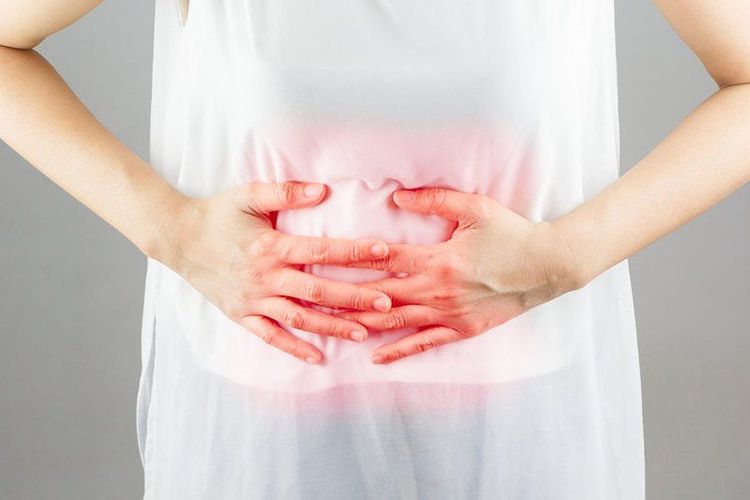
Mất máu nhiều trong chu kỳ kinh nguyệt có thể gây thiếu máu sau sinh
3. Effects of anemia on lactation
Postpartum anemia can affect the quality of your baby's milk supply during breastfeeding. It may even be necessary to perform early weaning of the baby. Furthermore, early weaning can lead to decreased weight gain and growth. According to statistics, about 225 pregnant mothers often experience anemia after the first time, with the hemoglobin level dropping to less than 10g/L.
4. Measures to help overcome postpartum anemia
Treatment of iron-deficiency anemia postpartum can be accomplished by changing a woman's diet and lifestyle to provide an adequate amount of iron according to the recommended needs. If a woman is diagnosed with iron deficiency anemia by a doctor, she should receive oral iron supplements with a concentration of 100 to 200 mg per day. Or you can use postpartum blood tonics or iron supplements in the form of tablets or capsules, but must follow the doctor's prescription. In severe cases, postpartum anemia, what drugs to take? An intravenous iron supplement of 800 to 1500 mg may be required. Blood transfusions can be performed to improve blood quality. For women with circulatory problems due to blood loss, blood transfusions should be performed for these subjects. Or for more serious anemia, there are many different medical treatments that need to be done under the direction of a doctor. Provide enough water content according to the body's daily needs. Drinking enough water daily will help the body improve blood flow in the postpartum period. Furthermore, adequate water intake can prevent blood clots and urinary tract infections. In the case of iron supplements that cause symptoms of bloating, liquid water can help improve this condition. Postpartum women need to supplement with about 3 liters of water per day. Choose and supplement foods that are rich in iron. Such as dark green leafy vegetables, beans, lentils, apricots, pumpkins, tofu, whole grains, asparagus, potatoes, squash, peas, oysters, oysters, chicken, beef, strawberries... Reduce the use of unhealthy beverages during this period, such as tea, which contains much different tannin content. And this compound can slow down the absorption of iron. Enhance iron absorption by consuming foods rich in vitamin C. Vitamin C helps the body absorb iron better. Therefore, at this time, women should choose foods rich in these nutrients, including: citrus fruits, string fruits, grapefruit, lemon... Make a reasonable rest. Although taking care of a baby after giving birth is quite difficult for women, you still need to try to maintain a reasonable rest regime combined with physical activity to help keep your body healthy Protect your body from harmful effects. infectious agent. The risk of infection can increase and lead to anemia, which in turn lowers the level of immunity in the body. In case, you discover any sign of infection, even the slightest, then you should contact your doctor to get it fixed promptly. Women who are planning to become pregnant or are pregnant or have given birth should have tests to diagnose anemia and take the most necessary treatment to minimize possible effects on her health. mother and baby.

Lựa chọn chế độ ăn khoa học giúp khắc phục tình trạng thiếu máu sau sinh
5. Using iron supplements in the treatment of postpartum anemia for women
Consequences of iron deficiency anemia can be quite serious in that it reduces the body's mobility, or causes stomatitis, gastritis, changes in the structure of hair, nails, skin or reduce thermogenesis as well as metabolism... Treatment of iron deficiency anemia can be done by oral iron supplementation, and in severe anemia may require intravenous iron infusion. circuit. However, blood transfusion or iron infusion can cause some health risks with transfusion reactions, infections, anaphylaxis...
Iron supplements are prescribed with a high Hb index. greater than 10g/dL with doses ranging from 80 to 160 mg of elemental iron/day and dosing for two weeks. Oral iron supplementation should be continued for at least three months to help normalize blood tests and iron stores.
Iron used infusion is usually in the form of venofer - iron sucrose 20mg/ml 5ml. This iron is injected intravenously immediately after that, the plasma iron concentration is high and helps to limit the iron excretion through the reticuloendothelial system and inhibit the absorption of iron through the intestinal mucosa. Therefore, this process will help provide enough iron for the formation of erythropoietin. According to the World Health Organization (WHO), intravenous iron sucrose improves postpartum anemia with a maximum total dose of 800mg divided into 4 days. Therefore, a single dose of 200 mg/day, as a continuous infusion, can be used to achieve the total dose.
However, the use of intravenous iron sucrose can also cause side effects such as allergic reactions, temporary taste changes or hypotension, fever and tremor or infusion site reactions, or anaphylaxis ... For patients with a history of bronchial asthma, liver dysfunction, acute or chronic infections with excessively elevated serum ferritin usually only used under the direction of a doctor.
Iron sucrose must not be used with oral iron preparations. Because iron in intravenous products can cause physiological changes related to iron absorption, iron absorption may be reduced by oral iron tablets.
According to studies, it is proved that using intravenous iron in obstetrics, especially for postpartum mothers, can help limit postpartum anemia and is quite safe for mother and baby with compliance. directed by Doctor.
Vinmec International General Hospital is one of the hospitals that not only ensures professional quality with a team of leading medical doctors, modern equipment and technology, but also stands out for its examination and consultation services. comprehensive and professional medical consultation and treatment; civilized, polite, safe and sterile medical examination and treatment space.
Please dial HOTLINE for more information or register for an appointment HERE. Download MyVinmec app to make appointments faster and to manage your bookings easily.





